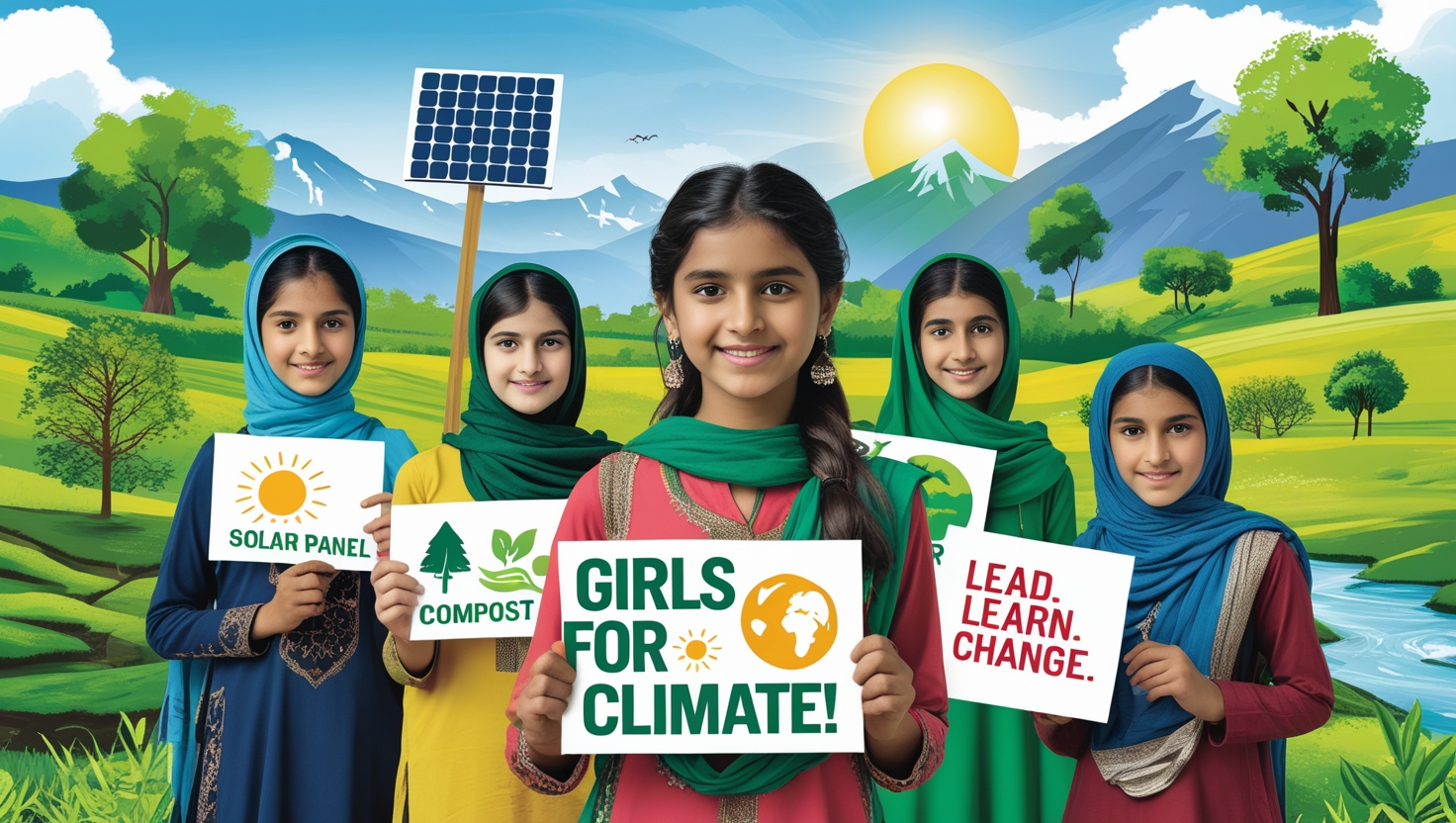

In the heart of Pakistan’s environmental challenges, a quiet revolution is taking place—led by young girls like Maheera, Innaya, and Fizza. These girls are not just learning about climate change; they are becoming climate leaders in their own communities. Through our Earth Warriorz climate education camps, they are discovering their voices, their power, and their purpose.
In a country vulnerable to rising temperatures, floods, and droughts, the role of women and girls in climate action is more important than ever. Yet, climate change education is rarely gender-inclusive. That’s why we believe in creating girls-only learning spaces, where young minds can flourish and feel safe to lead.
Globally, empowering girls through education is considered one of the most effective ways to fight climate change. According to Project Drawdown, educating girls and ensuring gender equality can dramatically reduce emissions over time. When girls are equipped with knowledge and confidence, they become catalysts for sustainable change.
In Pakistan—especially in rural regions like Gilgit-Baltistan, Swat, and Sindh—climate change is already disrupting lives. Yet, many girls lack access to education, let alone climate-specific knowledge. This inequality limits not just their potential, but our entire nation’s resilience.
Maheera, Age 11 – “I want to be a solar engineer”
After learning about renewable energy in our Karachi camp, Maheera became fascinated by solar panels. Today, she leads school campaigns on reducing electricity waste and promotes rooftop solar in her neighborhood.
Innaya, Age 13 – “I taught my whole family how to compost”
Hailing from a village near Hunza, Innaya attended our 3-day climate camp and built her own compost bin at home. Her family now composts food waste and grows vegetables in a small kitchen garden.
Fizza, Age 12 – “I organized a clean-up drive in my town”
After participating in our Earth Warriorz eco-games in Punjab, Fizza led 20 schoolgirls in a riverbank cleanup. Her story was even featured in a local newspaper, inspiring more action.
According to UN Women, climate change disproportionately affects women and girls. They face greater risks of food insecurity, health issues, and displacement—but they also hold unique potential as leaders in sustainability, agriculture, and water conservation.
Our girls-only modules are designed to close this gap. They include:
This blend of knowledge and empowerment is what sets our program apart—and why it works.